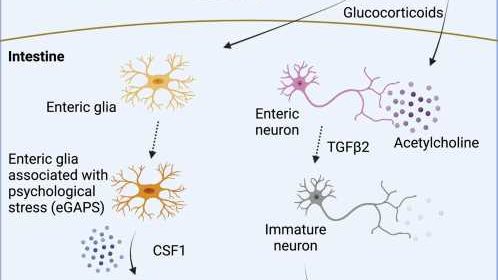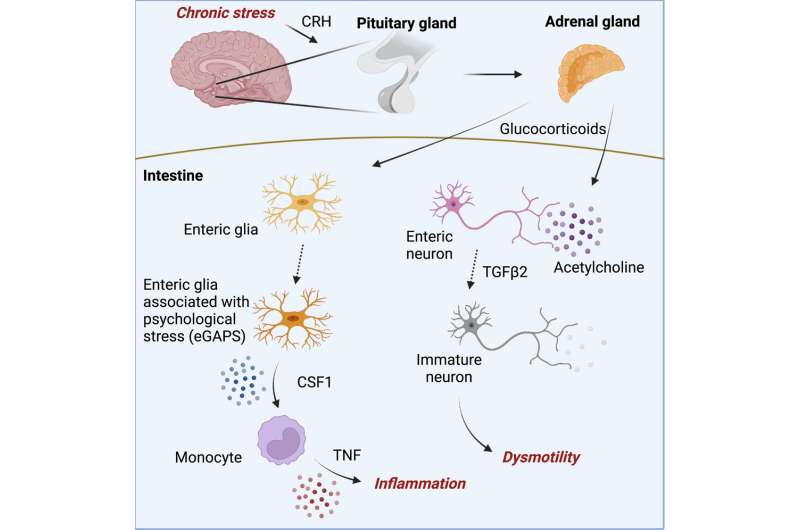Connection between immune system and brain in mice may explain why stress can worsen gut inflammation


A team of medical researchers affiliated with multiple institutions in the U.S. and the Netherlands has found a connection between the immune system and the brain in mice that could explain why psychological stress can lead to worsening gut inflammation problems in people with gut ailments. In their study, reported in the journal Cell, the group tested stressed lab mice.
Prior research has shown that people with colitis or Crohn’s disease, the two main types of inflammatory bowel disease (IBD), tend to experience flareups under stressors such as job loss or divorce. In this new effort, the research team sought to find the biological processes involved when such events occur. To that end, they conducted tests with lab mice.
To induce stress conditions, the mice were confined inside small tubes. They then were given chemical irritants to bring on IBD-like symptoms. Then, the mice were given drugs to block the production of inflammation-inducing glucocorticoids, which the brains of mice and humans produce during times of stress. Following that, the team conducted colonoscopies to rate intestinal damage.
They found that the mice with blocked glucocorticoid production had less damage to their intestines, suggesting that stress played a role in inflammation damage in the intestines. The research team then collected tissue samples from the colons of the mice to study their genetic makeup. They found that the mice with higher levels of glucocorticoids also had differences in glia nerve cells—such cells, the team notes perform maintenance and communication functions and tend to respond to stress hormones.
Further study of the mice cells showed that higher stress levels resulted in preventing the maturing of some nerve cells. The researchers note that this is relevant because prior research has shown that mature nerve cells are needed to drive movement of fecal material in the bowels.
The research team then compared what they found in the test mice with tissue samples collected from 63 people with IBD and found similar results. They also asked the IBD patients to fill out a questionnaire and found that those patients who experienced more stressful events, reported stronger symptoms and had more intestinal damage.
More information:
Kai Markus Schneider et al, The enteric nervous system relays psychological stress to intestinal inflammation, Cell (2023). DOI: 10.1016/j.cell.2023.05.001
Journal information:
Cell
Source: Read Full Article